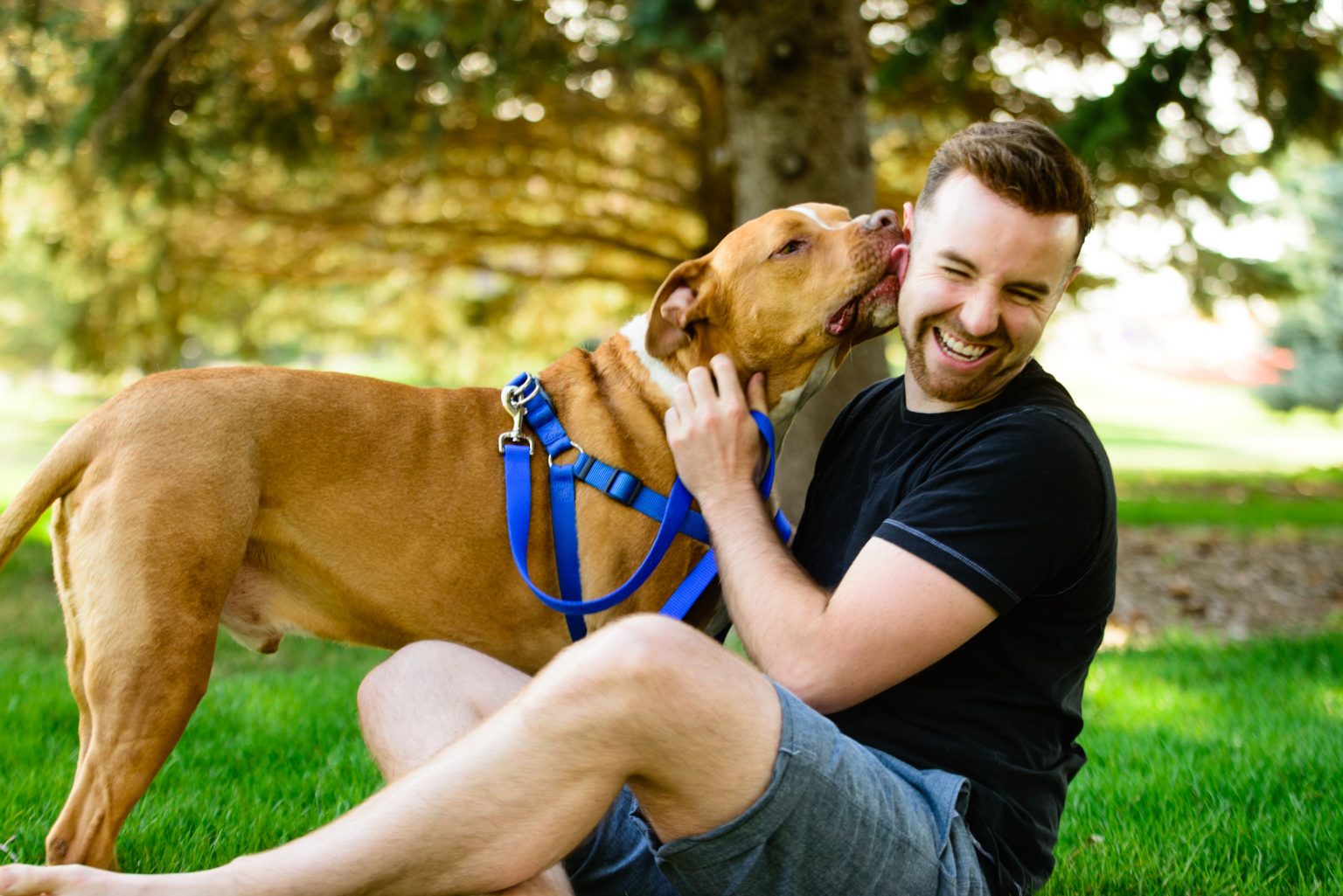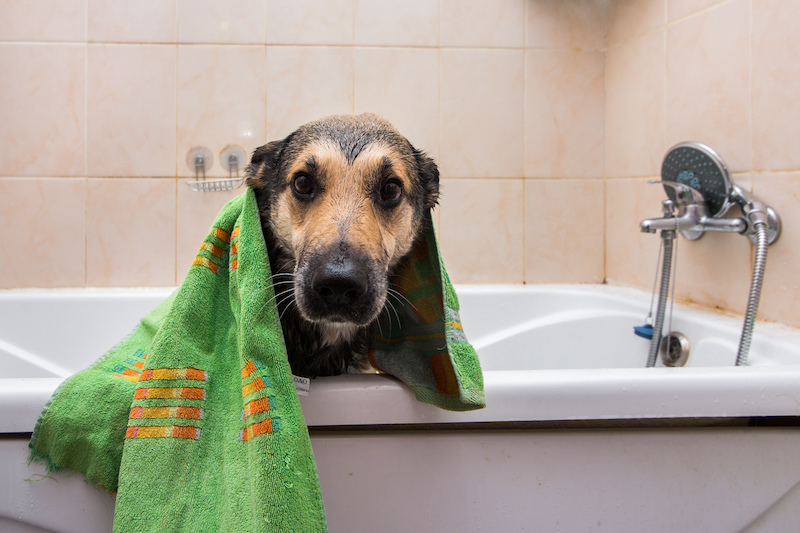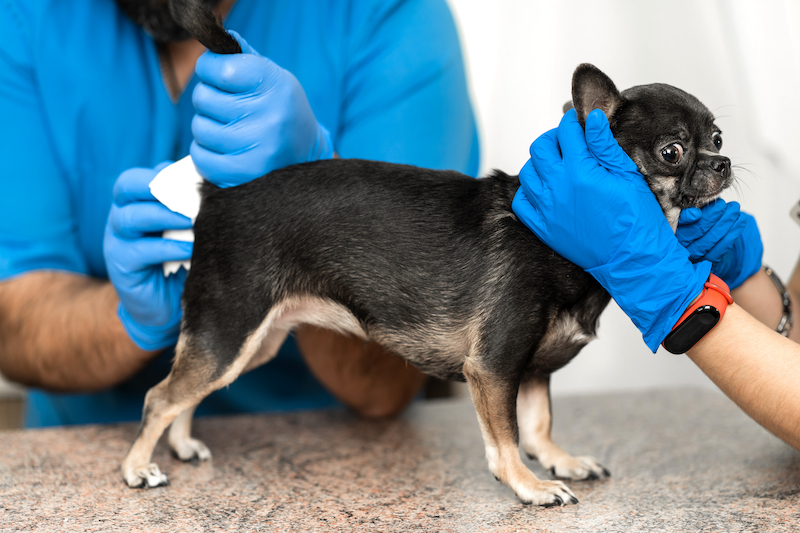
This blog is all about what happens when a male dog’s erection won’t go away. It’s important to be upfront about these matters because, well, male dogs get erections fairly often. The more pet owners are familiar with them, the better. Canine male anatomy is on full display, even when they’re not aroused. However, their penis can get into a lot of trouble when they encounter an issue known as pet paraphimosis.
Not Going Away
Male dogs have the following basic equipment down there:
- Two testicles inside a scrotal sac
- Prepuce (external sheath)
- Glans
You may have heard it referred to as a red rocket, lipstick, pinky-winky, or wee-nis, but no matter what it’s called, the glans is the part that sticks out during an erection.
Is It Harmful?
The prepuce safely houses the delicate tissue of the glans. It is warm and moist inside the prepuce and protected from exposure or injury. However, when a dog is sexually aroused or otherwise stimulated by their environment, the glans will stick out for all to see.
Normal Functions
Dogs also have a secondary reproductive gland called the bulbus glandis which, like testicles, look like two balls at the base of the penis. After ejaculation, the bulbus glandis becomes engorged and leads to the breeding tie between the male and female. This can last upwards of 20 minutes and increases the odds of impregnation.
During this time, the glans penis remains open to the elements. Pet paraphimosis occurs when the erection doesn’t go down after 20-30 minutes following an erection or ejaculation.
Why Does This Happen?
Pet paraphimosis can be linked to the following:
- Physical trauma to the area
- An obstruction in the glans penis or something wrapped around the base
- A growth or tumor
- A Neurological condition
- Anatomical abnormality
Dog owners should have a good idea of how long the erection has lasted before intervening. If the erection doesn’t go away after 20 minutes or so, inspect the area for any visual clues. Remove any hair or string that’s causing a prolonged erection. Lubricate the glans with sterile lubricant to try to smooth the way back inside the prepuce.
When It’s Time to Come In
An extended period of pet paraphimosis is considered a pet emergency. Constant, prolonged exposure to air, bacteria, and irritation to the tissue. Plus, it can be very painful for dogs to experience. We can decrease swelling and attempt to replace the glans inside the prepuce. In severe cases of pet paraphimosis, surgical intervention is required.
Pet Paraphimosis
The good news is that, while dog erections are common, pet paraphimosis isn’t an everyday occurrence. That said, it’s always best to know exactly what you’re looking at and when to seek help. Our team at Eastside Veterinary Associates is always here for your dog. Please give us a call anytime at 425-882-7788 (Kirkland) or 425-276-4100 (Newcastle).


